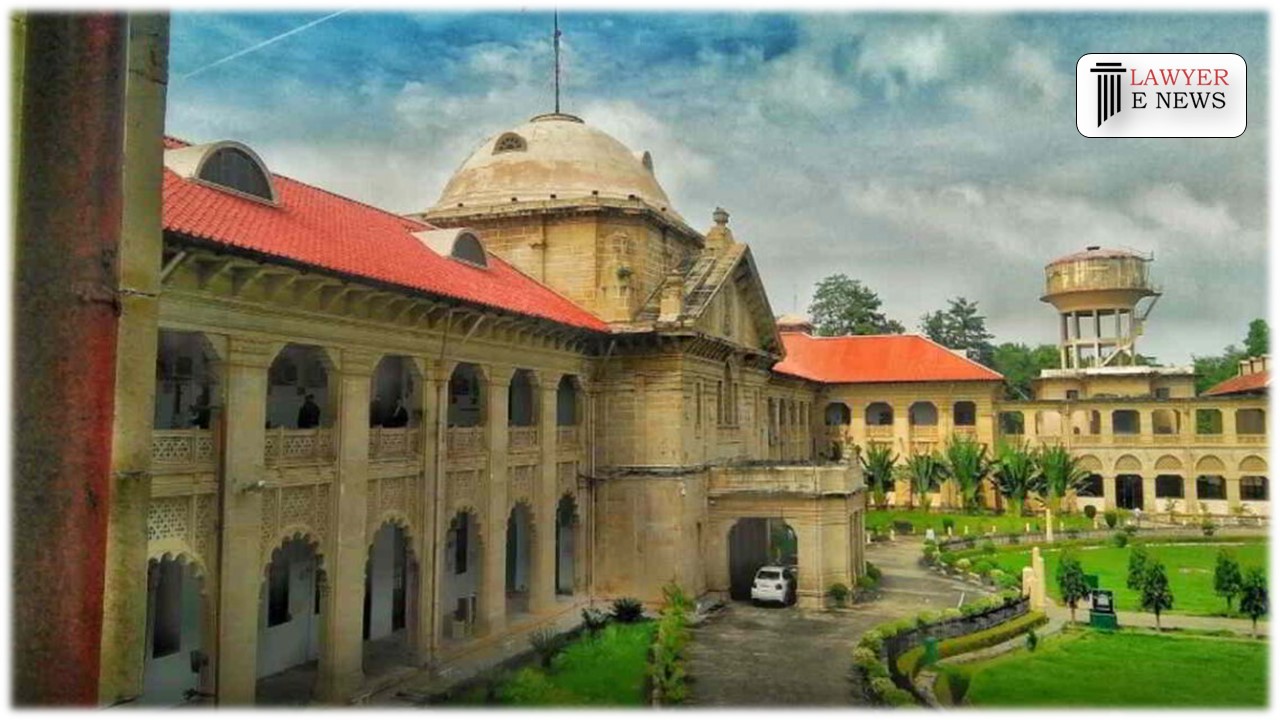-
by Admin
15 February 2026 2:16 AM



Allahabad, India – May 24, 2024: In a significant ruling, the Allahabad High Court, presided over by Justice Saurabh Shyam Shamshery, has nullified the selection process for the post of Registrar at the Indian Institute of Information Technology, Allahabad (IIIT-A). The decision, rendered in response to two writ petitions, highlighted severe procedural deviations and unauthorized influences that compromised the integrity of the recruitment process.
Introduction
The judgment concerns the petitions filed by Prof. Vijaishri Tiwari, challenging the invalidation of her selection as Registrar of IIIT-A. The court’s ruling underscores the necessity for strict adherence to prescribed procedures in recruitment processes within educational institutions.
Background
The case revolves around the selection process initiated by IIIT-A for the Registrar position. The institute advertised the vacancy on July 27, 2021, following which Prof. Tiwari, who was then the Acting Registrar, applied for the role. A Selection Committee was formed to oversee the process, and Prof. Tiwari was eventually selected. However, allegations of procedural deviations and unauthorized influences led to the intervention of the Ministry of Education, which prompted a review of the process.
Key Points of the Judgment
The court identified that the Selection Committee for the Registrar position included members who were not approved by the Board of Governors (BoG) or the Senate. The inclusion of additional members without requisite approvals rendered the committee’s constitution invalid, violating Clause 9(5) of the IIIT Statutes
The court found that the Selection Committee conducted a written test (Case Study), which was not mentioned in the advertisement. The addition of this test, without prior approval or notification, constituted a significant deviation from the prescribed procedure.
Prof. Tiwari, despite being a candidate, was found to have influenced the selection process. As the Acting Registrar, she participated in the BoG meeting that approved her selection, which compromised the fairness and impartiality of the process.
The judgment referenced several legal precedents, including Kuntesh Gupta v. Management of Hindu Kanya Mahavidyalaya Sitapur and others and Kerala State Electricity Board v. Hindustan Construction Company Limited and others, emphasizing that any deviation from prescribed procedures or unauthorized actions in selection processes render the process invalid.
Court Observations and Analysis
The court emphasized the importance of maintaining transparency and adherence to statutory procedures in recruitment processes. It noted that the deviations in the selection process were not mere irregularities but fundamental breaches that compromised the process’s legality.
Conclusion
The Allahabad High Court’s decision to invalidate the selection process for the Registrar position at IIIT-A underscores the critical need for strict adherence to procedural norms in recruitment processes within educational institutions. The ruling not only nullifies the previous selection but also sets a precedent for future recruitment processes, emphasizing the importance of transparency and adherence to statutory guidelines.
Future Actions
The court allowed IIIT-A to proceed with a fresh recruitment process, granting liberty to the institute to permit Prof. Tiwari’s participation if deemed appropriate. The judgment signifies a pivotal step towards ensuring fairness and integrity in the recruitment processes of educational institutions.
Date of Decision: May 24, 2024
Prof. Vijaishri Tiwari vs. Union of India and others
